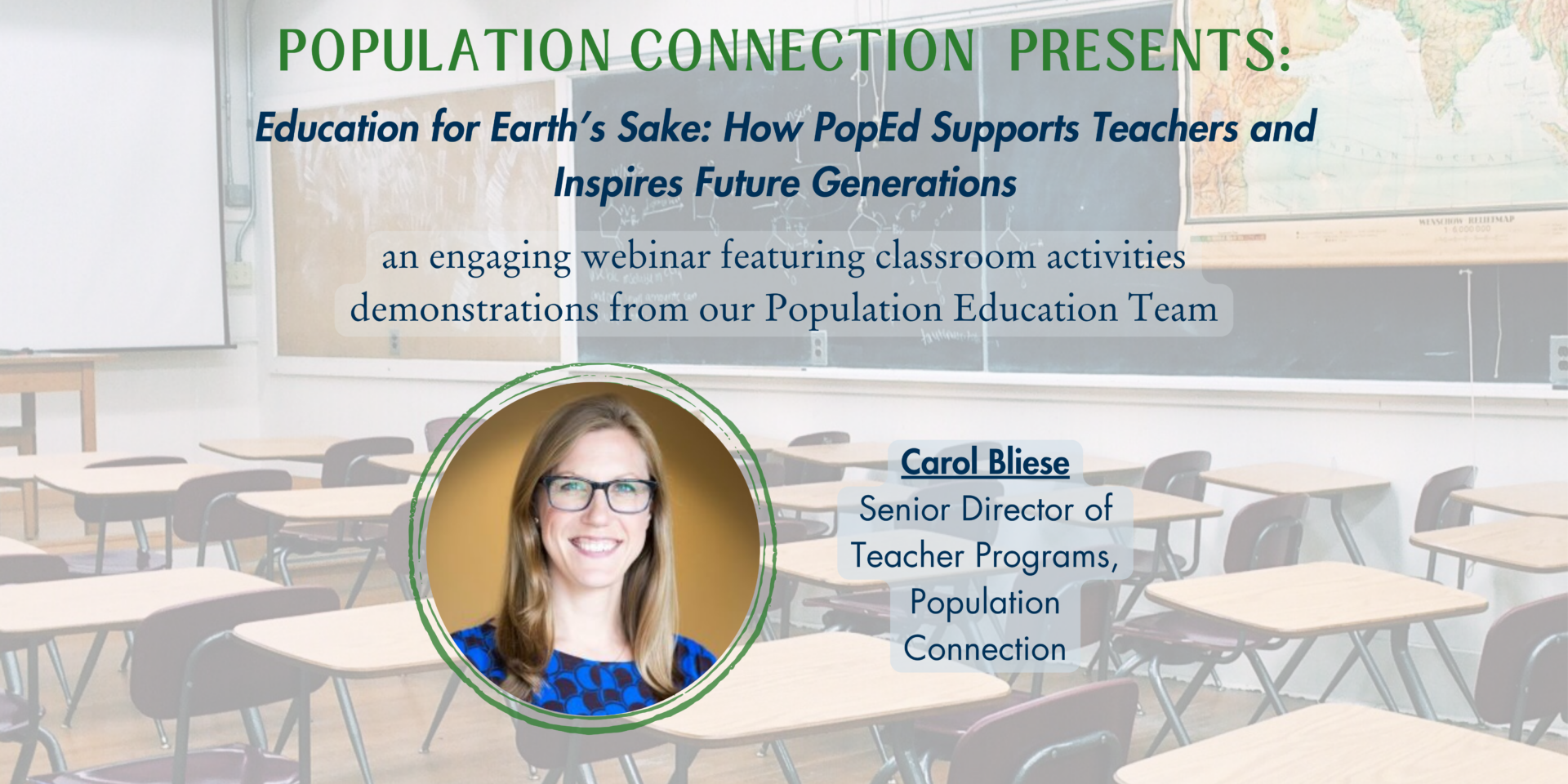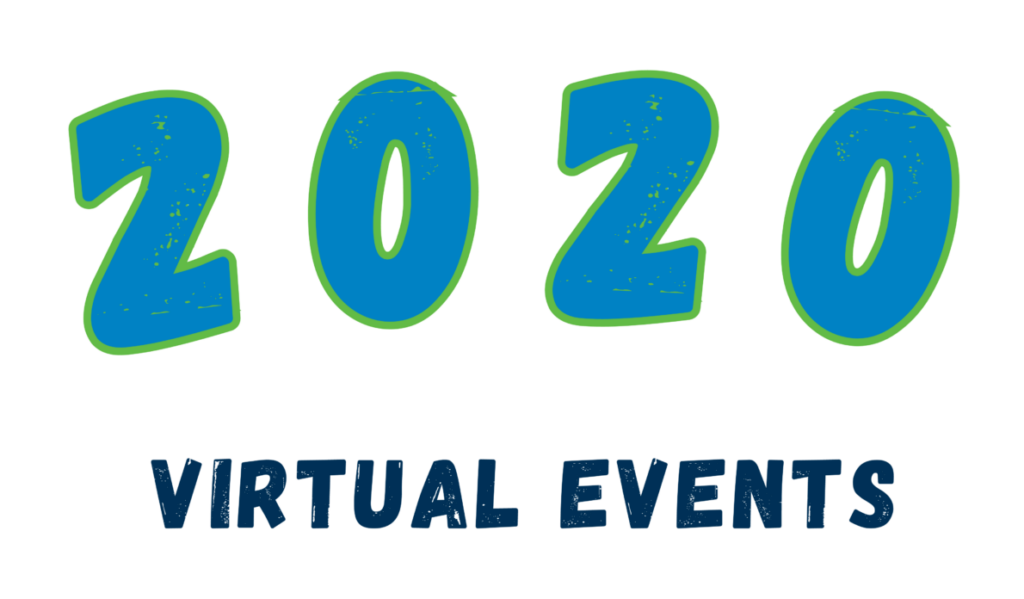
Over the past year, we’ve assembled a lineup of virtual events showcasing experts in reproductive rights, conservation, and population dynamics. Hosted on Zoom, these sessions offer engaging presentations by accomplished professionals, followed by interactive Q&A sessions. Explore recordings of these events below!
Earth Day Challenge
Presentations with CEO and President John Seager and Communications Manager Hannah Evans
Leading up to the 50th anniversary of Earth Day, we held a virtual Earth Day challenge consisting of daily actions individuals could partake in to reduce their environmental impact. Two of the challenges included tuning in to presentations hosted by our President, John Segar, and Communications Manager, Hannah Evans.
Challenge Date: April 2020
More Details Here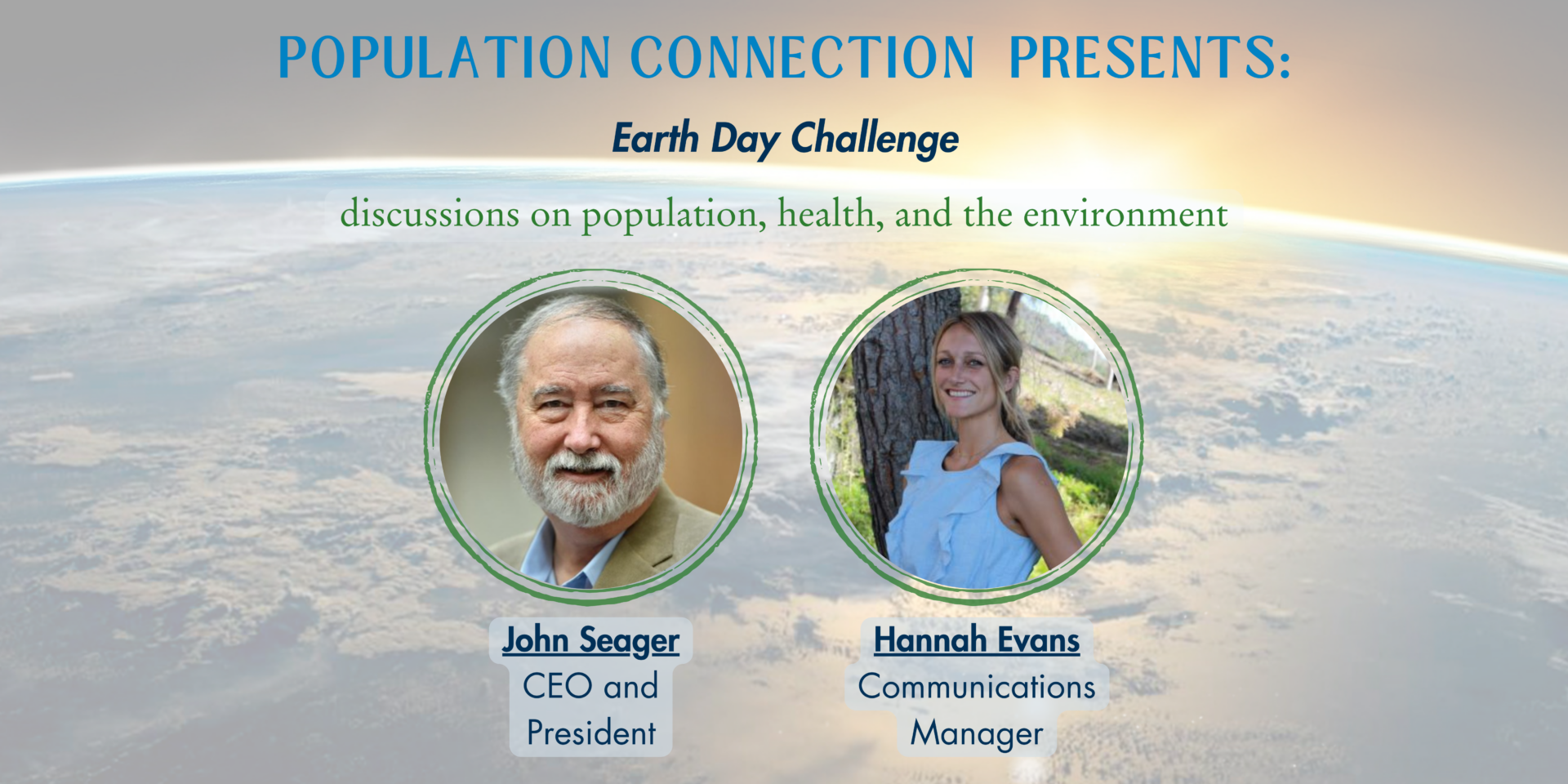
![]()
An Introduction to Population and Climate Change
Presenter: Hannah Evans, Communications Manager, Population Connection
This session will introduce some of the main links between population growth and climate change.
Presentation Date: August 6th, 2020
More Details Here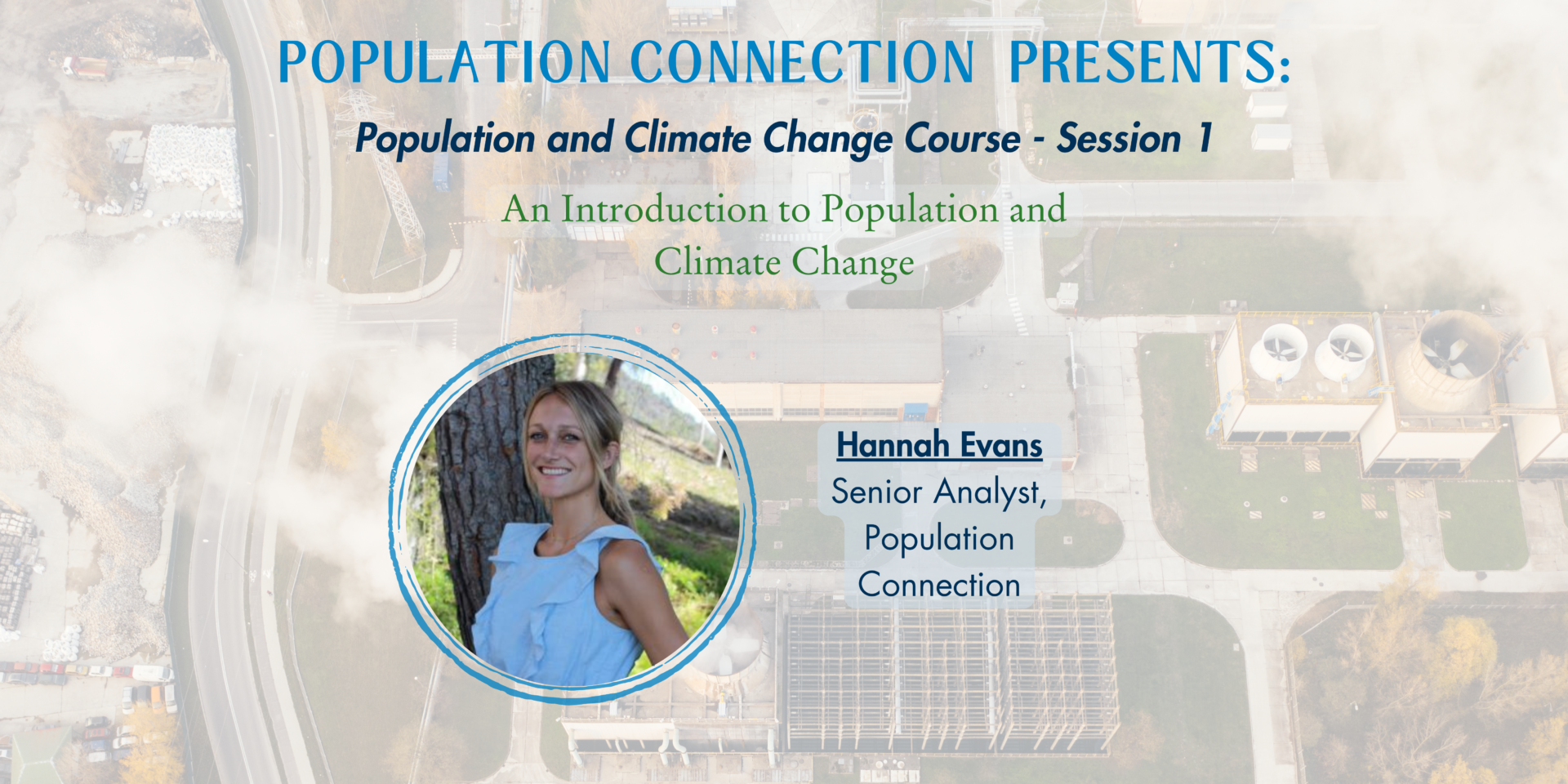
Climate Justice: Why Climate Change Is a Social Justice Issue
Presenter: Hannah Evans, Communications Manager, Population Connection
Mitigating climate change is one of humanity’s most significant challenges. In keeping with the global movement towards racial justice, this session will introduce and define the concept of “climate justice.”
Presentation Date: August 13th, 2020
More Details Here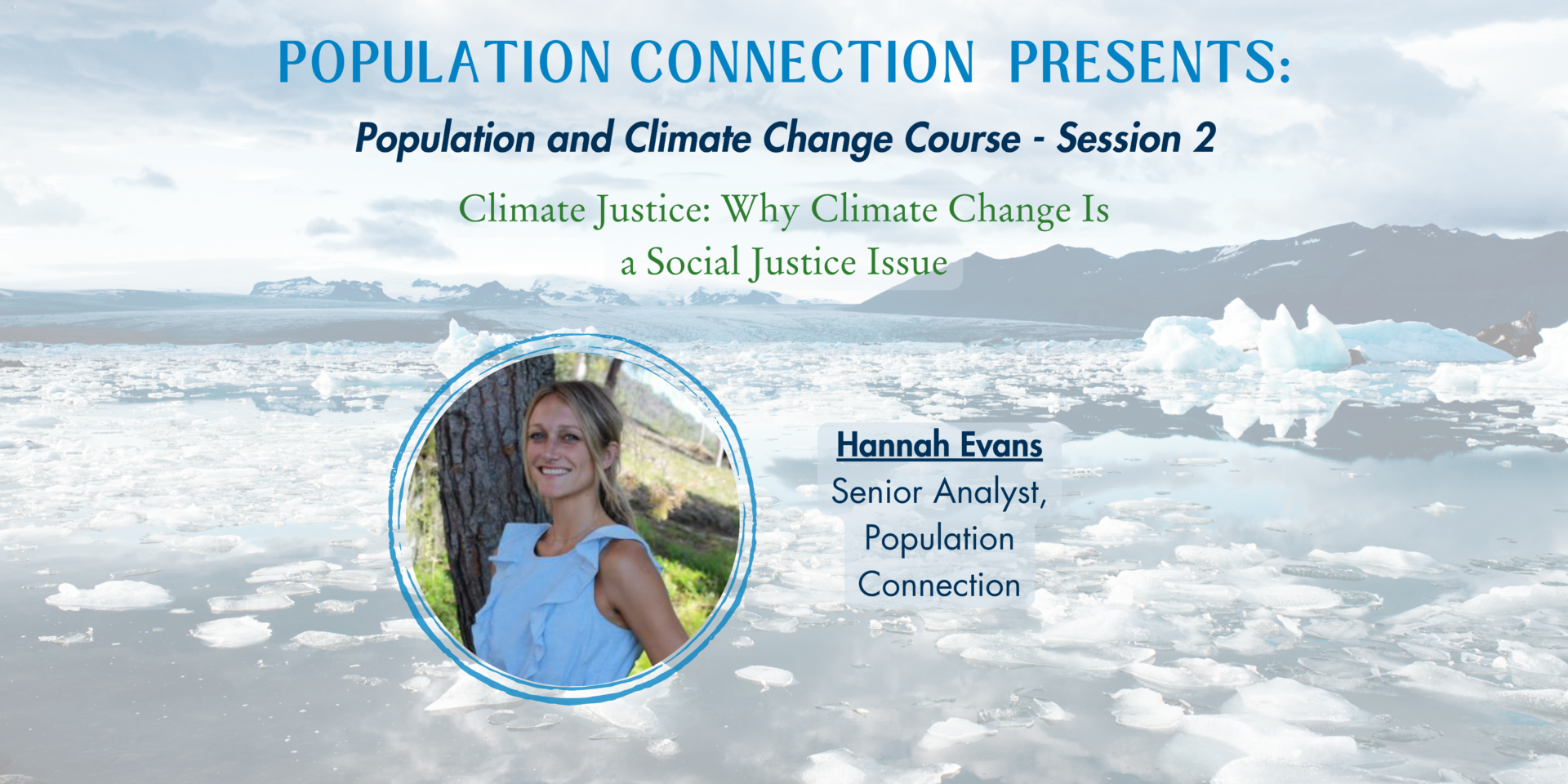
Zoonosis: How Does Population Growth Influence Animal-to-Human Pathogen Spillover?
Presenter: Hannah Evans, Communications Manager, Population Connection
Using the Covid-19 pandemic as an example, this session will discuss the links between human activity and zoonotic diseases. It will explore how deforestation, habitat destruction, species extinction, wildlife trade, and industrialized agriculture have contributed to zoonotic disease outbreaks by creating ideal environments for animal-to-human pathogen spillovers.
Presentation Date: August 20th, 2020
More Details Here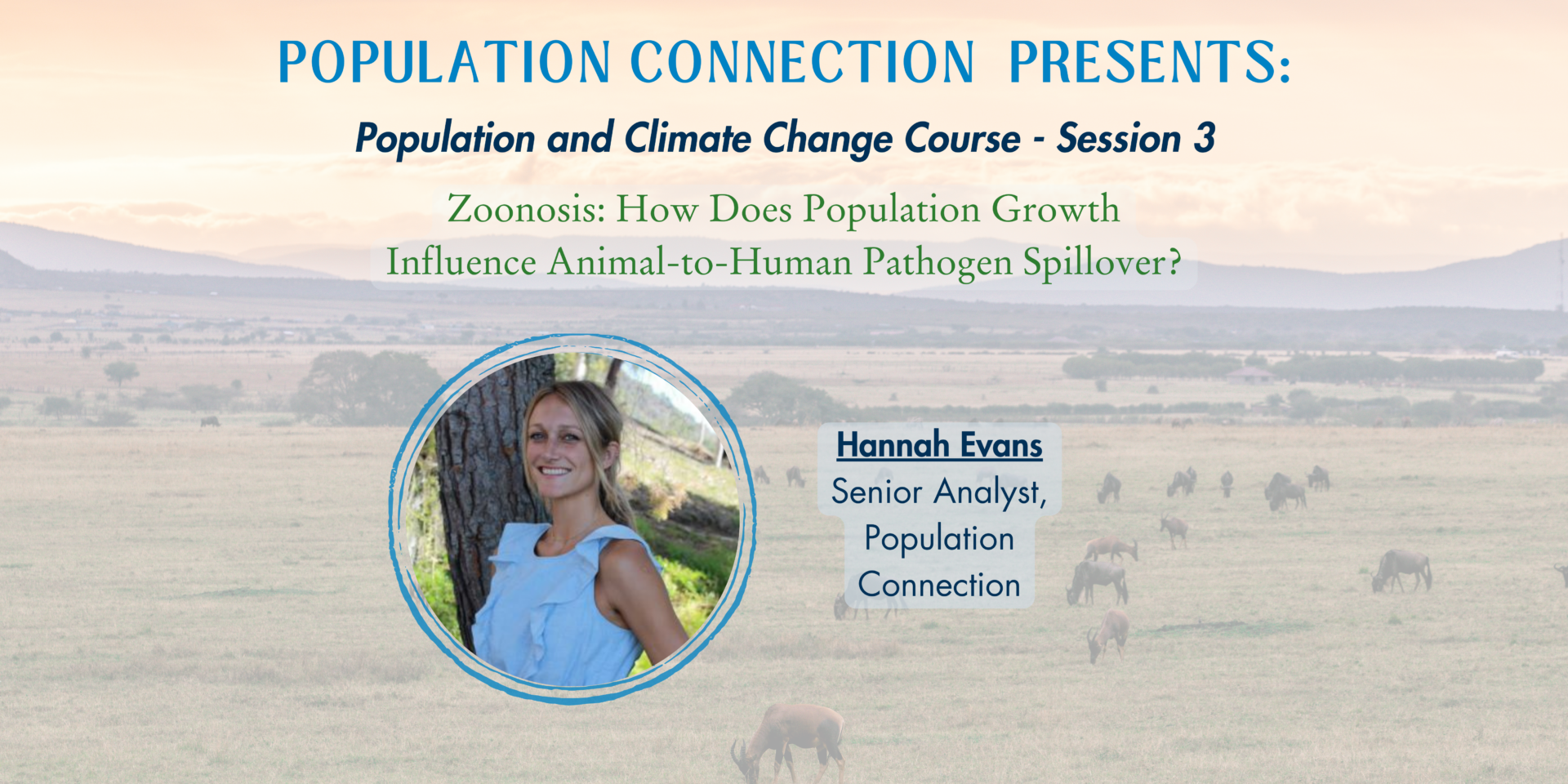
Solutions Through Reproductive Health: Why Family Planning Matters to Climate Change
Presenter: Hannah Evans, Communications Manager, Population Connection
The final session of our Population and Climate Change course will investigate the roles that access to reproductive health and family planning, as well as girls’ education, play in climate change mitigation and adaptation strategies.
Presentation Date: August 27th, 2020
More Details Here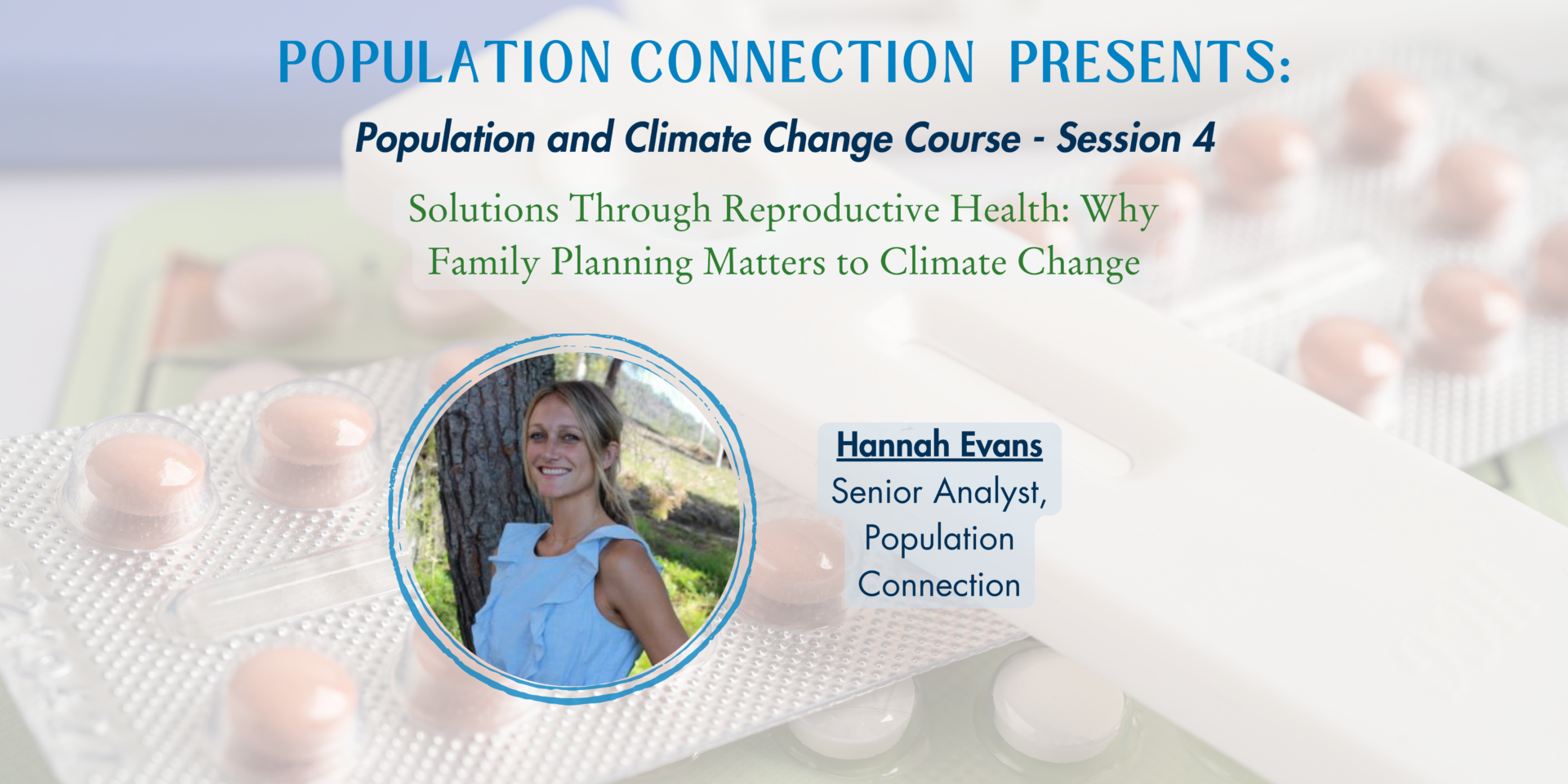

Responding to COVID-19 through a One Health Approach to Gorilla Conservation
Presenter: Dr. Gladys Kalema-Zikusoka, founder and CEO of Conservation Through Public Health
Presentation Date: June 18th, 2020
More Details Here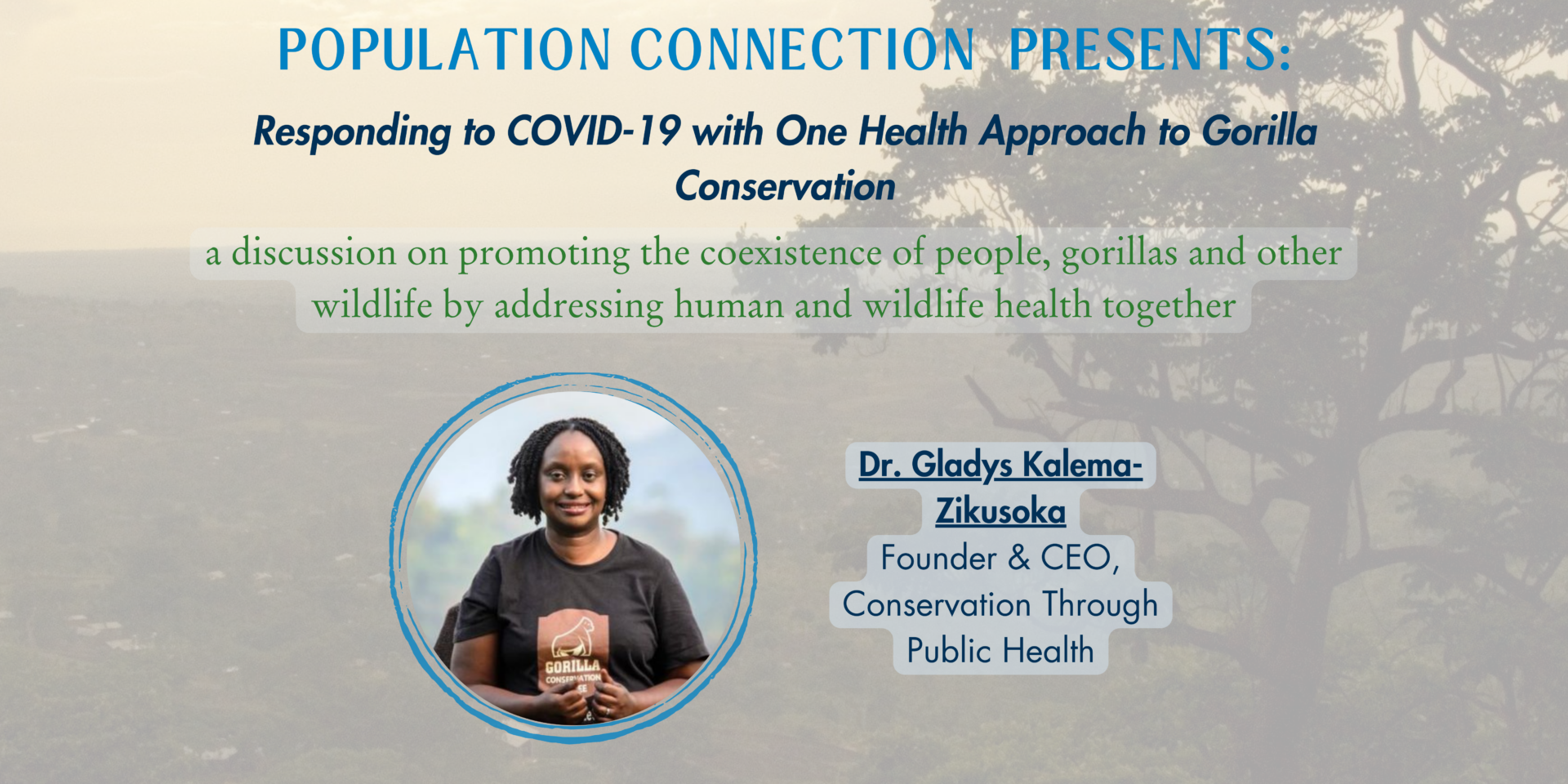

WINGS in the Time of COVID-19
Presenters: Dr. Rodrigo Barillas and Dr. Michelle Dubón
WINGS is a non-profit organization that offers reproductive health care, education, and services primarily to indigenous Guatemalans. During the presentation, we’ll learn how WINGS has adapted to continue meeting the needs of the communities they serve over the last several months.
Presentation Date: July 9th, 2020
Recording Available Here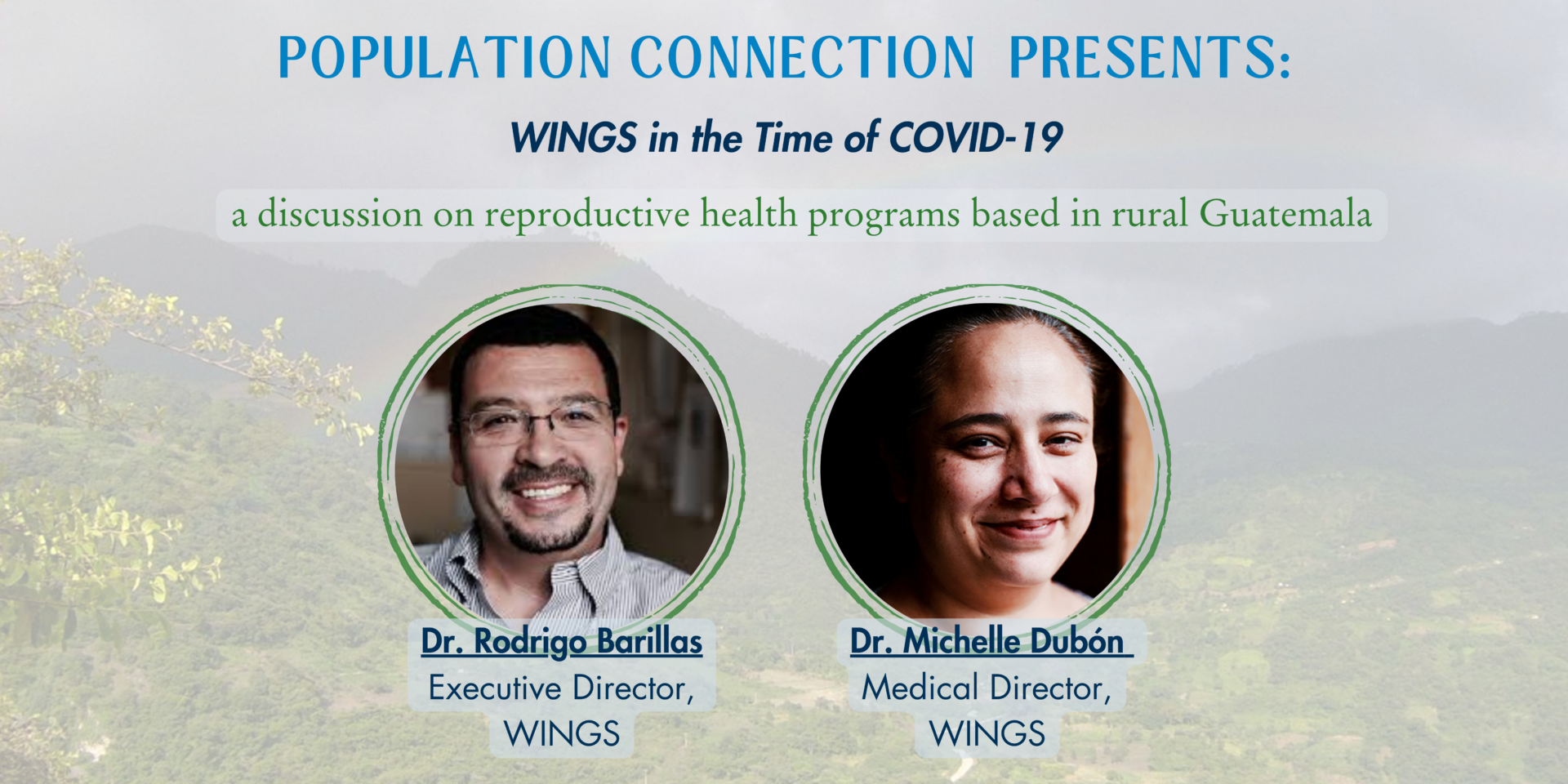

Contraceptive Mechanism of Action: In The Womb Where it Happens
Presenter: Dr. Mark Hathaway, Senior Technical Advisor for Reproductive Health, Jhpiego
Drawing on his experiences as a OB/GYN, professor, and advisor, Dr. Mark Hathaway’s presentation will help participants learn more about and better understand the reproductive health and family planning options.
Presentation Date:September 24th, 2020
More Details Here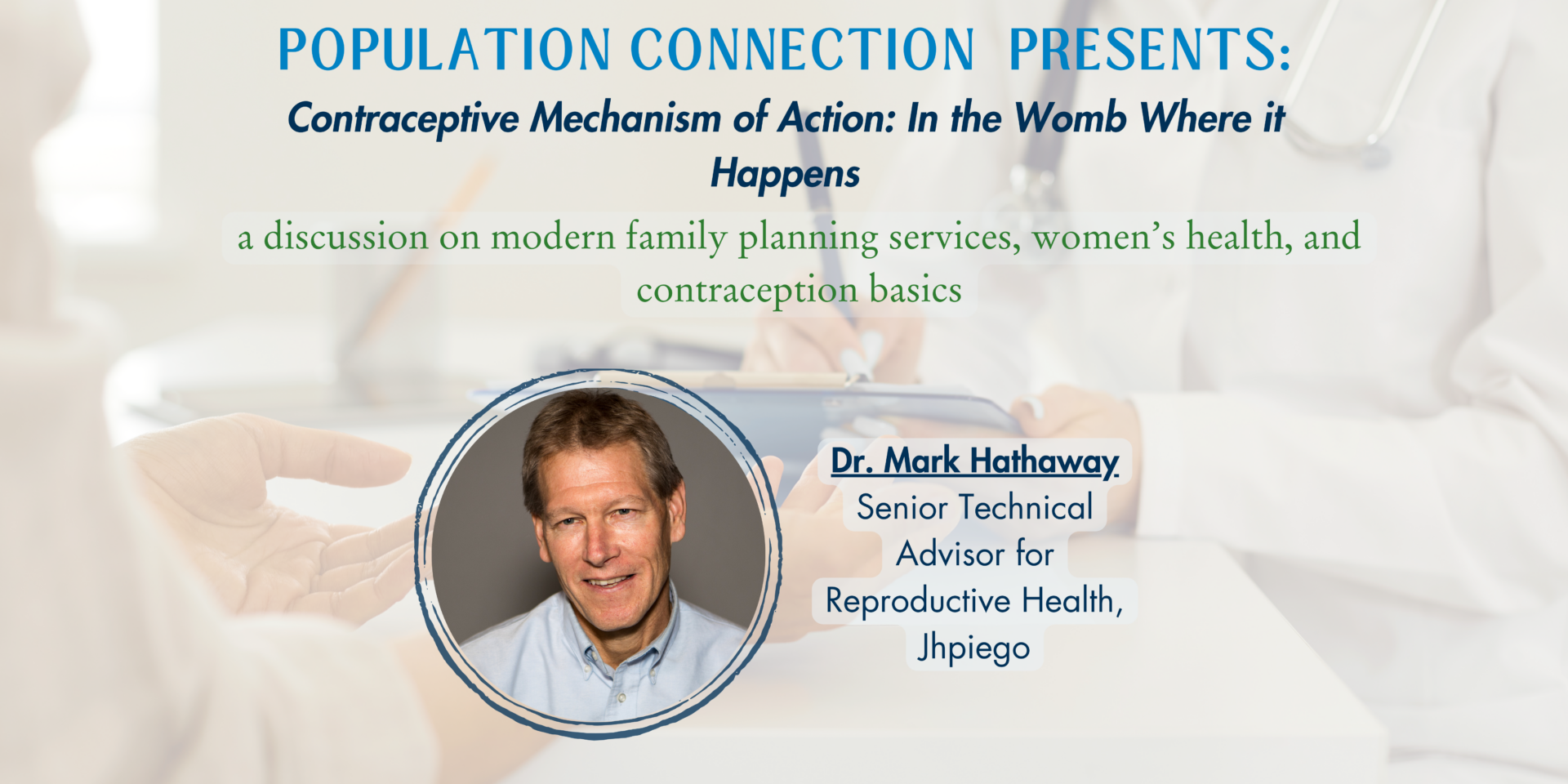

Family Planning in Francophone West Africa: Progress and Challenges
Presenter: Pape Amadou Gaye, President, Emeritus IntraHealth International Inc.
During the event, we will learn more about what governments, civil society, and the donor community have been doing to boost family planning uptake in French-speaking West Africa.
Presentation Date: October 29th, 2020
More Details Here
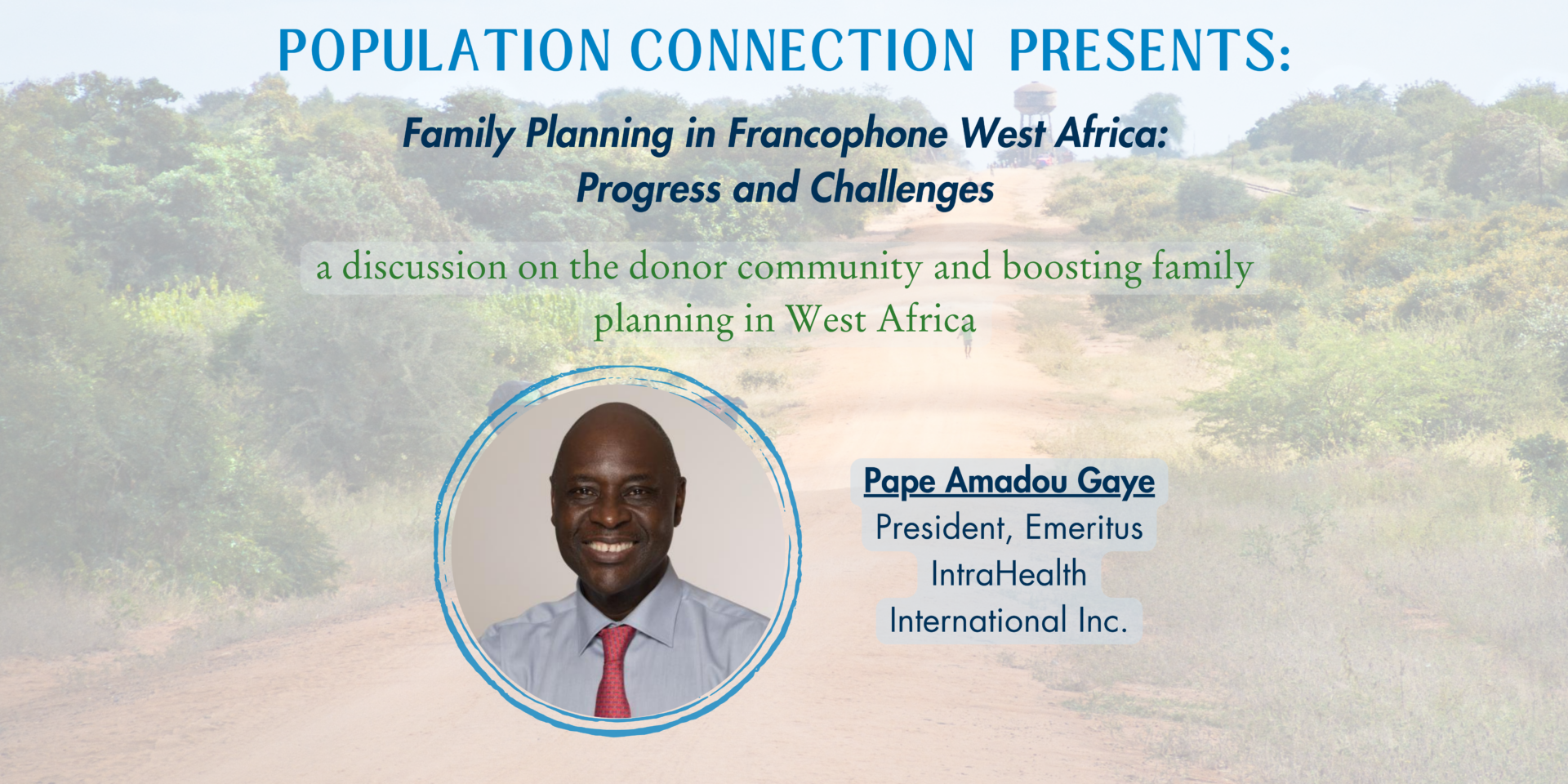

What Happens Next: A Discussion About Reproductive Rights Advocacy After the 2020 Election
Presenters: Rebecca Harrington and Brian Dixon, Population Connection Action Fund
This panel discussion will cover the landscape for reproductive rights advocacy in the aftermath of the 2020 election, as well as Population Connection and Population Connection Action Fund’s plans for our grassroots programs in 2021.
Presentation Date: November 19th, 2020
More Details Here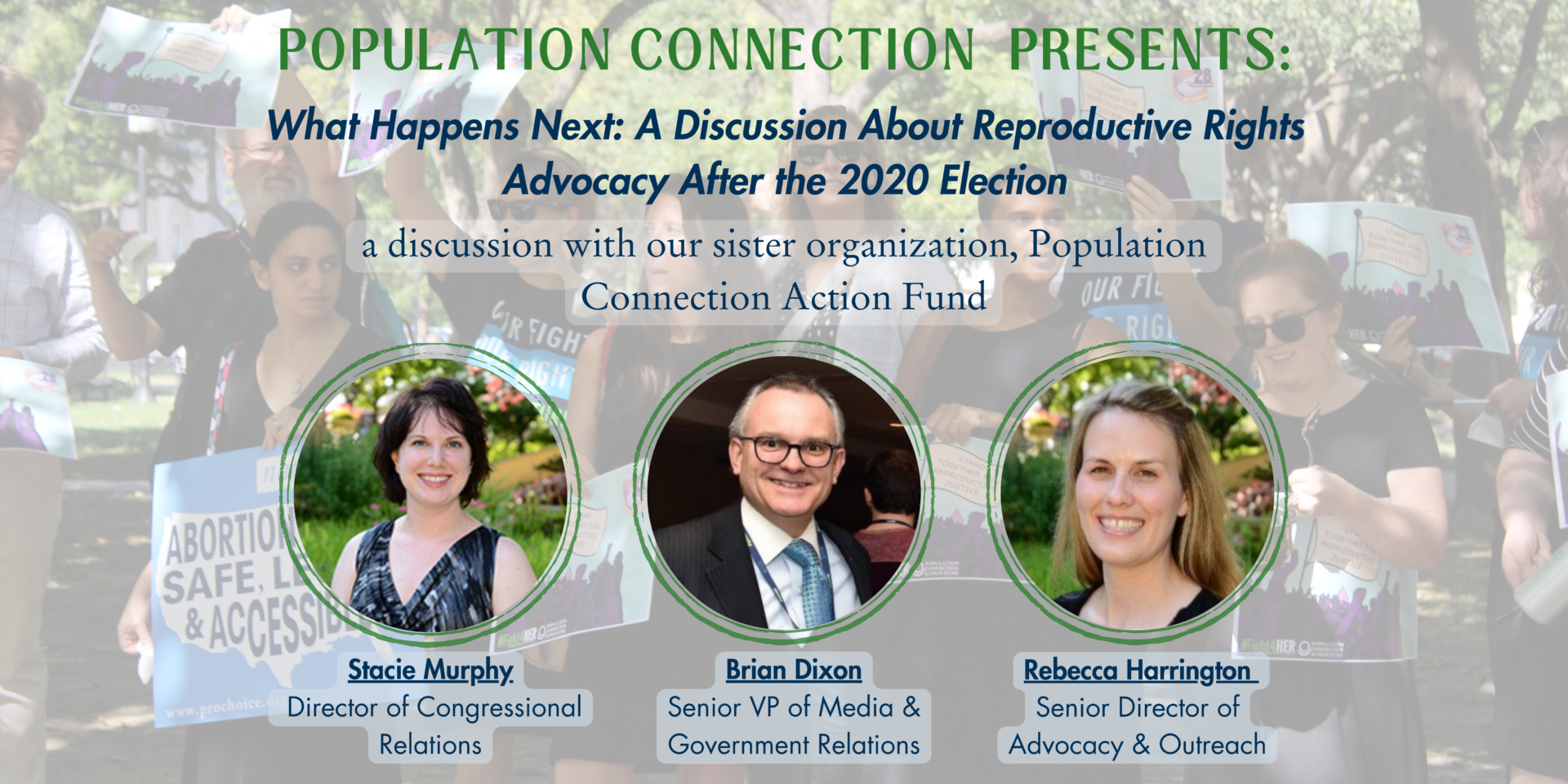

Education for Earth’s Sake: How PopEd Supports Teachers and Inspires Future Generations
Presenter: Carol Bliese, Senior Director of Teacher Programs, Population Education
How does the Population Education (PopEd) program work within schools and support teachers who are educating today’s young people about population, sustainability and global citizenship? Join us for this engaging hour and find out. We’ll give you an insider look at PopEd’s teacher training workshops and demonstrate some of our favorite classroom activities.
Presentation Date: December 10th, 2020
More Details Here